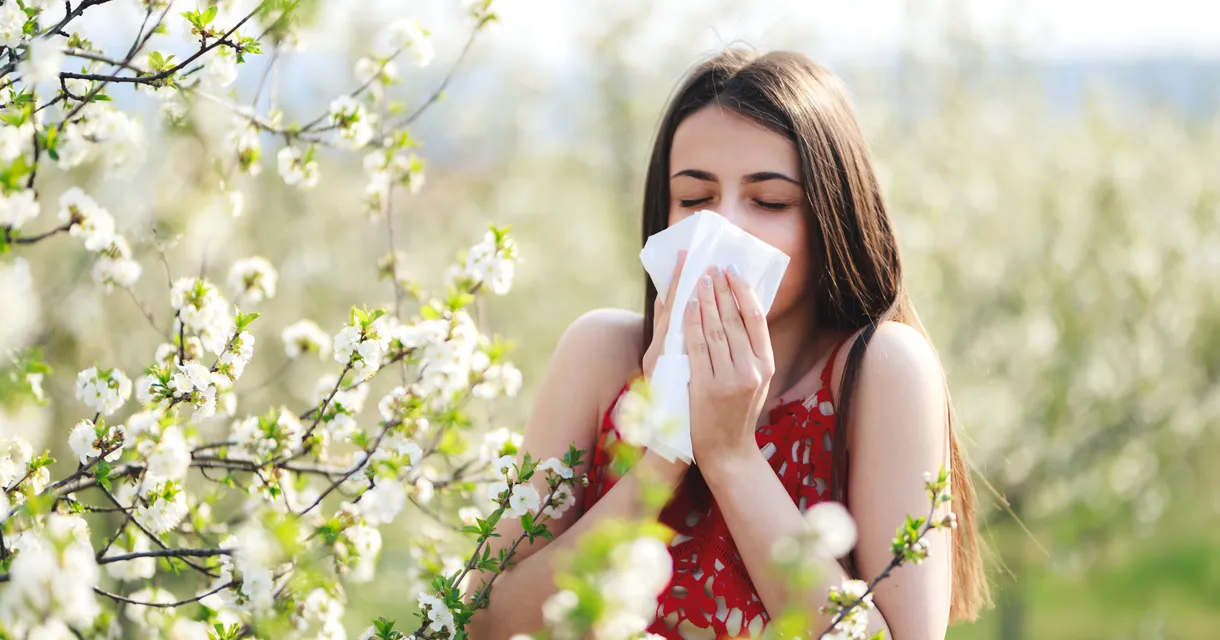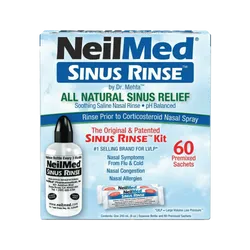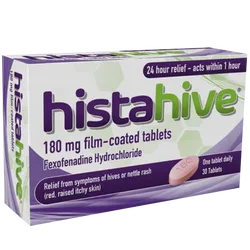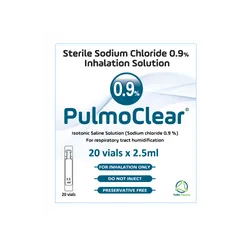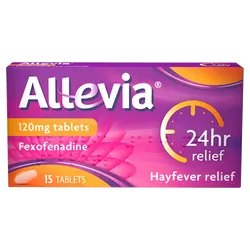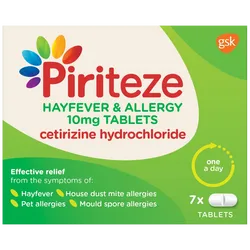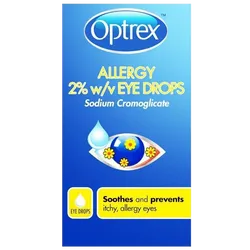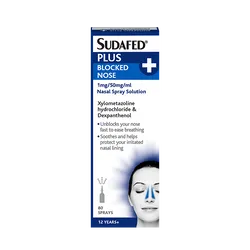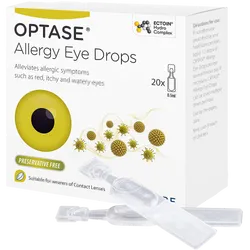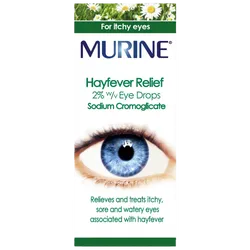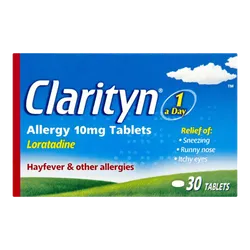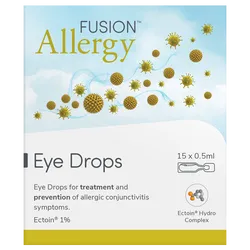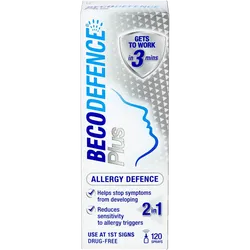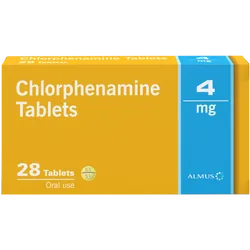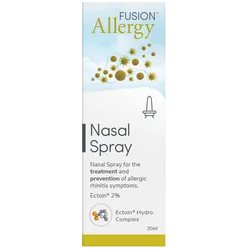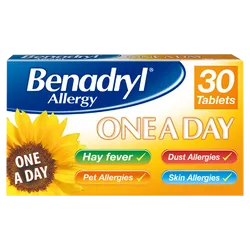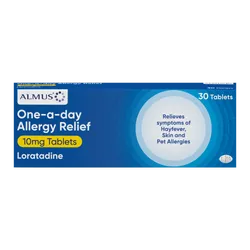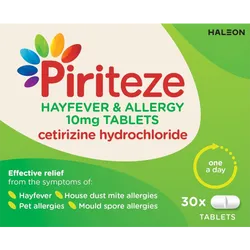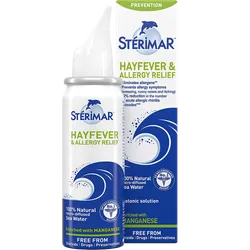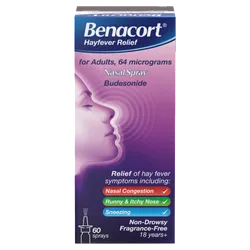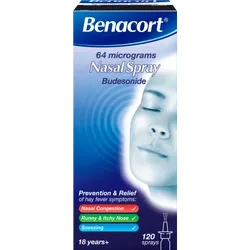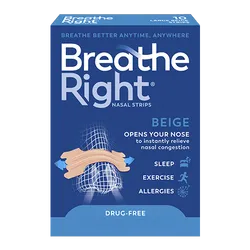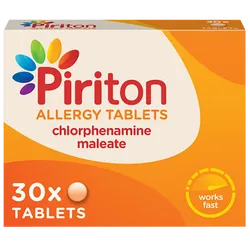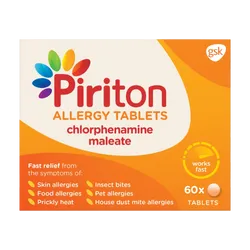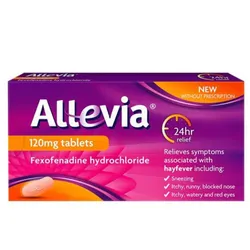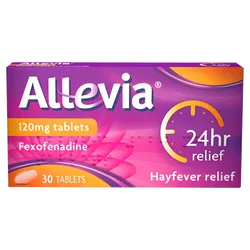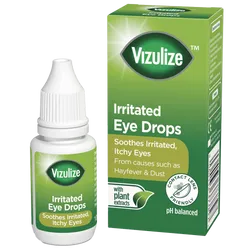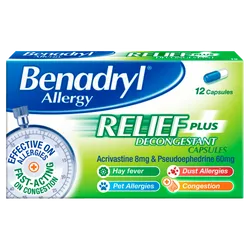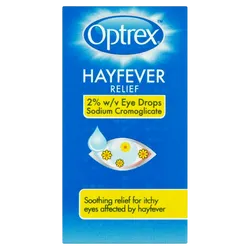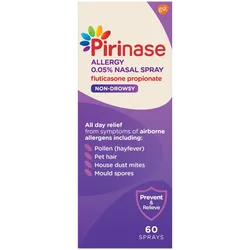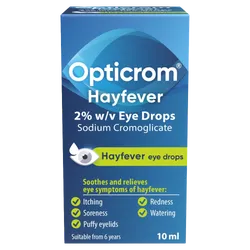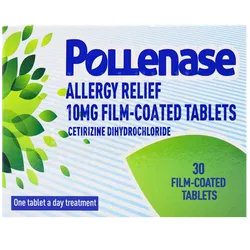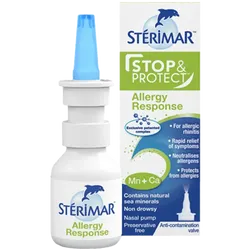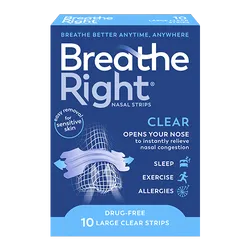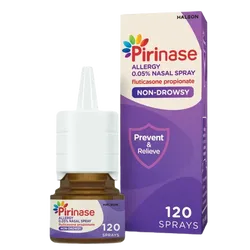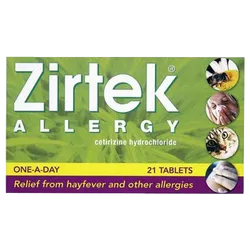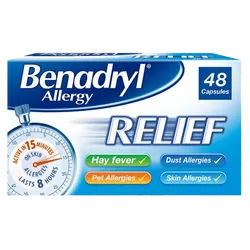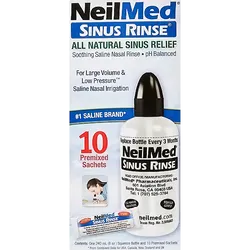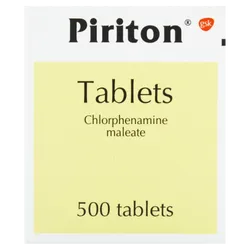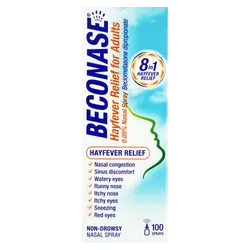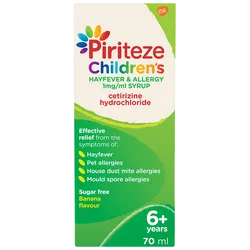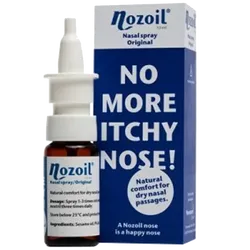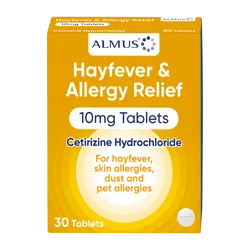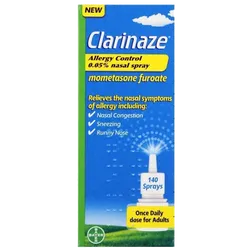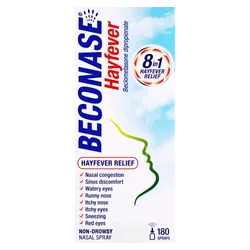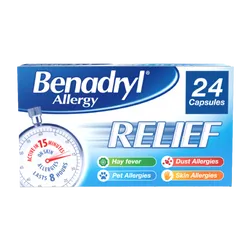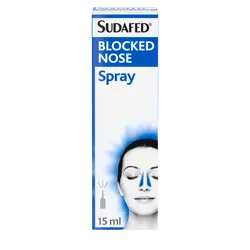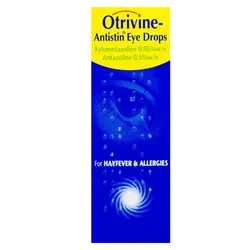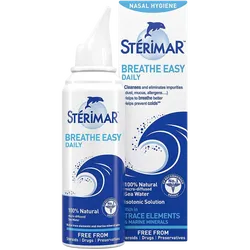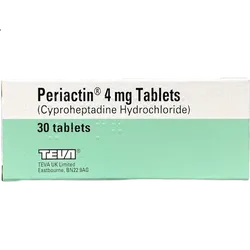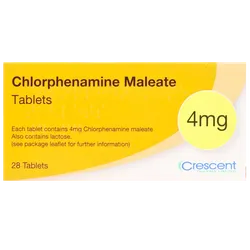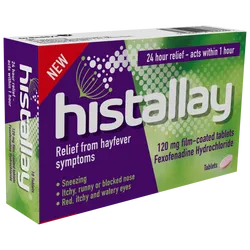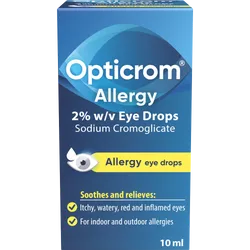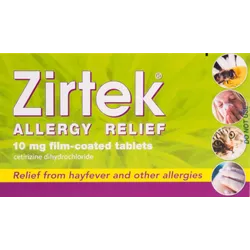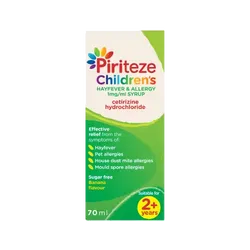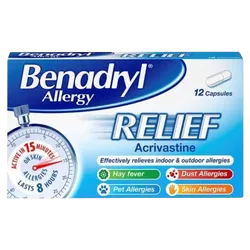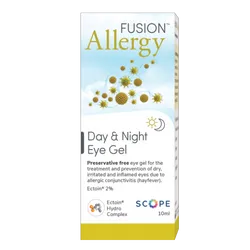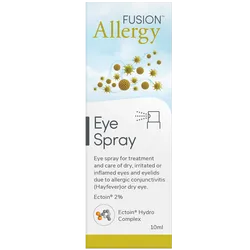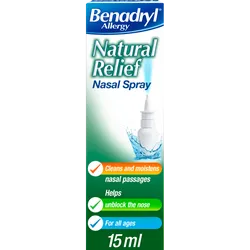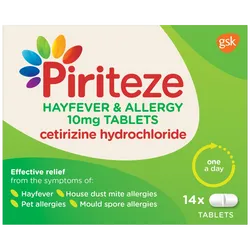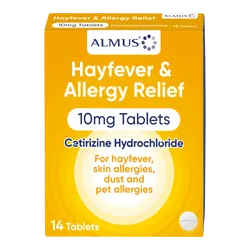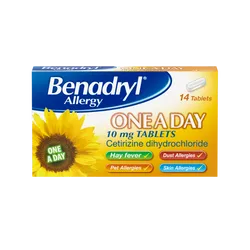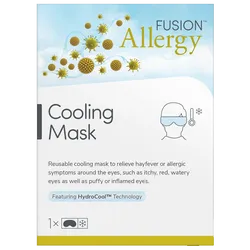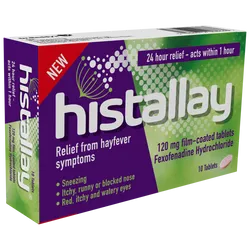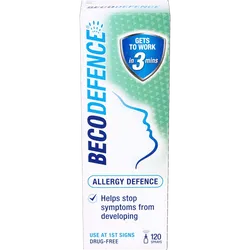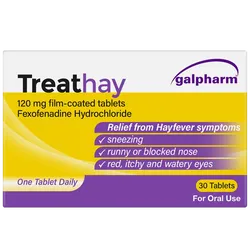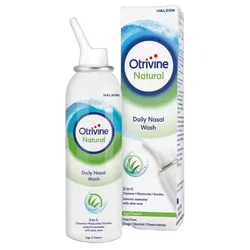One of the most common allergies is hayfever. Hayfever symptoms can occur at any time of the year, but are most prevalent during the warmer seasons. If you're suffering from hayfever, check out our guide for advice on managing common symptoms, selecting the right hayfever tablets and treatments, and explore our pollen calendar for all the information you need.
At Weldricks Pharmacy, we have advice and specialist products to help you manage your hayfever. If your allergies are severe, your GP can work with you to diagnose your allergies and offer a tailored treatment plan.
What is Hayfever?
One of the most common allergies is hay fever, affecting around 10 million people of all ages in the UK. Hayfever, or allergic rhinitis, is caused by a typically harmless substance in your environment triggering your immune system to attack it.
Environmental triggers for hayfever vary, but can commonly include grass, trees, weed pollens and outdoor moulds. Generally, people with hayfever suffer from an allergic reaction to pollen when it comes into contact with their mouth, nose, eyes, and/or throats.
Pollen is a fine powder that can be found in and released by plants, particularly between the months of March and September, especially when it’s warm, windy and humid. This is when the pollen count is at its highest, and consequently when most sufferers feel their hayfever symptoms at their worst.
Hayfever Symptoms
As hayfever is caused by the body’s immune system overreacting to pollen, immediate signs and symptoms of hayfever can include the following:
Common hayfever symptoms
- Coughing (caused by postnasal drip - mucus running down the throat, from the nose)
- Itchy, runny or blocked nose
- Sneezing
- Itchy or sore ears
- Itchy, red or watery eyes
- Itchy or sore throat
- Pain around temples, or headache
Less common hayfever symptoms
- Loss of sense of smell
- Pain in face, caused by blocked sinuses
In severe cases, hayfever symptoms can make the individual feel very tired and unwell, which may even cause sleep deprivation and loss of concentration.
Many also ask if hayfever can make you cough — the answer is yes, it can. A cough brought on by hayfever is often dry and tickly, due to a postnasal drip, which is when mucus drips down the back of your nose and into your throat causing agitation. If you want to alleviate your hayfever cough, you could try decongestiants to dry up the postnasal drip, or inhaling steam (optionally adding Olbas oil drops) to lubricate the throat and stop hayfever coughing. Cough sweets can also aid a tickly or dry cough, and nasal sprays for allergies can help combat hayfever coughs too.
Many of the symptoms of hayfever are similar to that of a cold of flu (making it particularly hard to distinguish hayfever in autumn or winter), so make sure to seek professional help if you are concerned, in order to get the right treatment for your condition.
Hayfever Causes
Hayfever usually occurs when allergens, such as pollen, come into contact with your mouth, nose, eyes or throat.
Pollen is a fine powder released by plants to aid in reproduction. Pollen contains proteins that can irritate the nose, eyes and throat when inhaled or when it comes in contact with your eyes.
There are many types of pollen, which affect hayfever sufferers at different times of the year. Some pollens can be detected as early as January in the UK, but peak in spring and summer time:
- Tree pollen (typically released around late Feb through to mid-May).
- Grass pollen (typically released around May through to July/August)
- Weed pollen (typically released in May/June through to August/September)
According to recent Met Office estimates, tree pollen affects around 25% of hayfever sufferers.
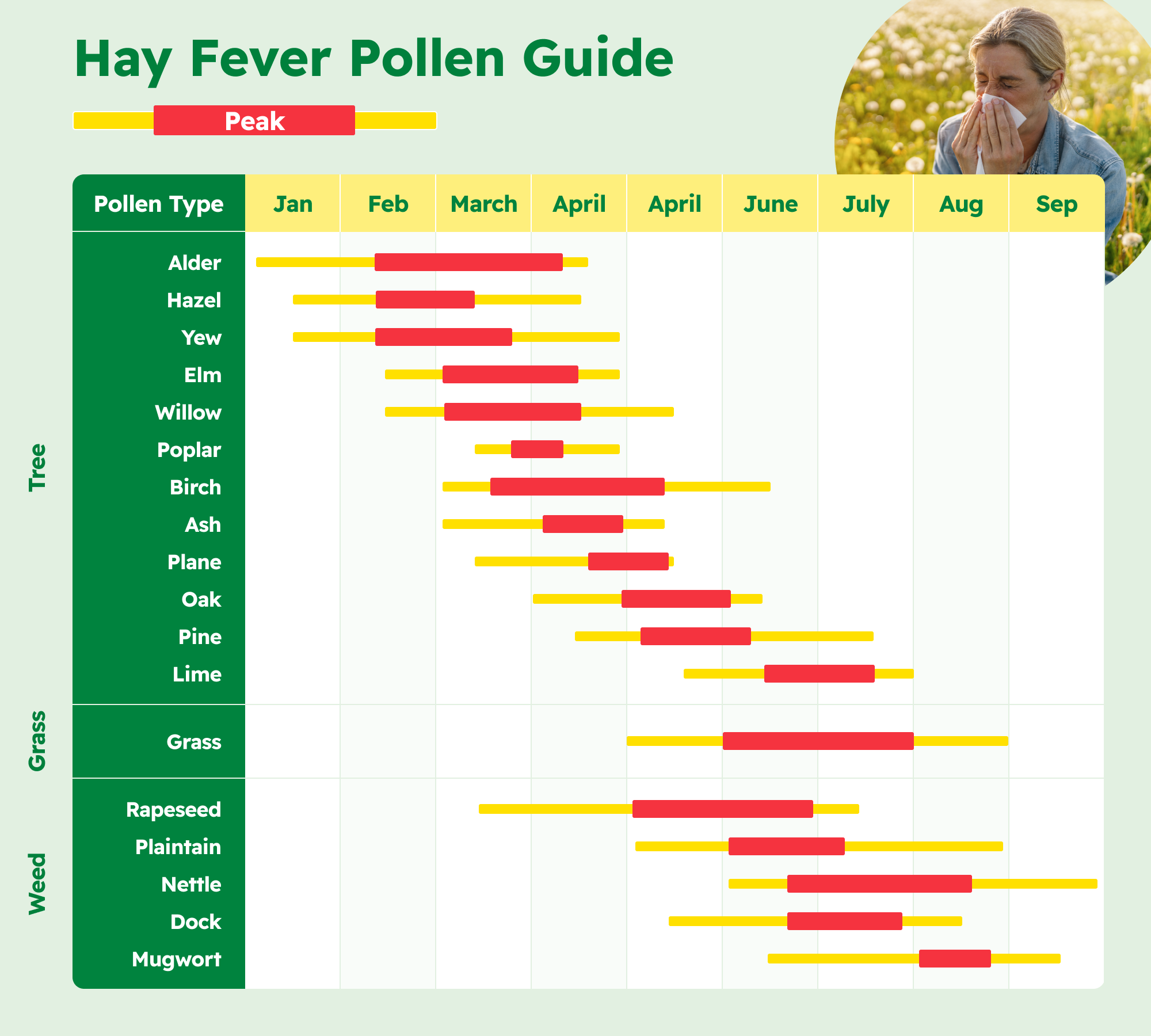
How to Get Rid of Hayfever
Over the years, people have attempted to get rid of their hayfever with many different natural remedies. Some are backed with a little logic, but many are simply old wives’ tales, which our experts certainly wouldn’t recommend!
From a close facial shave or putting Vaseline around your nostrils when the pollen count is high, to stuffing garlic cloves up your nose or eating locally sourced honey, there are some interesting theories out there.
However, if you want to soothe and treat your hayfever symptoms fast, there are plenty of more useful treatment options (both prescription and non-prescription) that you can try which are backed by medical experts.
We offer a wide range of hayfever treatment options to help you soothe the main hayfever symptoms. Our range of hayfever remedies includes antihistamine Piriton allergy tablets, fexofenadine, nasal sprays, eye drops, or oral hayfever medicines. We also stock a variety of popular leading hayfever remedy brands including Allevia, Piriton, Treathay and more.
Both loratadine and cetirizine are also good options; classed as non-drowsy antihistamine medicines, these can help the symptoms of allergies and hayfever. For dry and itchy eyes you could give the Visualize Irritated Eye Drops a go; perfect for soothing your hayfever irritation (they’re contact lens friendly too). Browse our extensive range of hayfever tablets and treatments to find the right product for you. Don’t let allergies get you down this season!
Natural Remedies for Hayfever
There are plenty of hayfever tablets and medicines out there, however, if you’re hoping to naturally soothe your symptoms, you can take these steps when the pollen count is high, including:
- Wear glasses/sunglasses to minimise pollen getting into your eyes
- Stay indoors whenever possible
- Keep windows and doors shut as much as possible
- Vacuum and clean on a regular basis
- Wash bed sheets and pillowcases on a weekly basis
- Avoid activities that may cause exposure to pollen, such as sports or cutting the grass in your garden.
- Use a damp cloth to dust around your home
- Stay at home if you do not feel well enough and minimise contact with other people
Light rain can actually clear the pollen from the air, which is why some hayfever sufferers who live in the UK consider themselves quite lucky - regardless of what season we’re in, there’s more than likely a smattering of rain coming soon! However, heavy rain, especially when it’s windy or falls later in the day, can actually stir pollen up and make symptoms worse.
Other countries with a high prevalence of hayfever are Australia and New Zealand, whereas countries including Indonesia, Romania, Albania, Georgia and Greece have a very low prevalence of hayfever. You can read about hayfever abroad in our guide.
Don’t forget to take a look through our guide to choosing the best antihistamine for dosage, side effects, effectiveness and more on the best hayfever tablets. You can also read about the difference between Piriton and Piriteze hayfever treatments here. Browse our range of effective treatments to help you manage your hayfever symptoms and reduce the impact they have on your daily life. Always be sure to ask your GP or pharmacist for advice on the best option for you.
